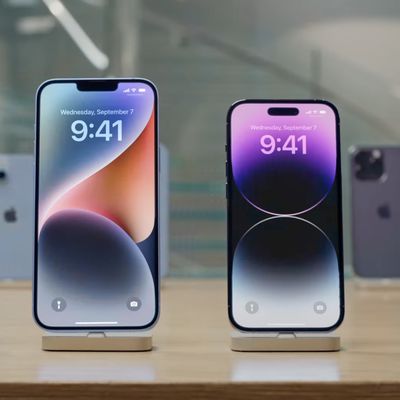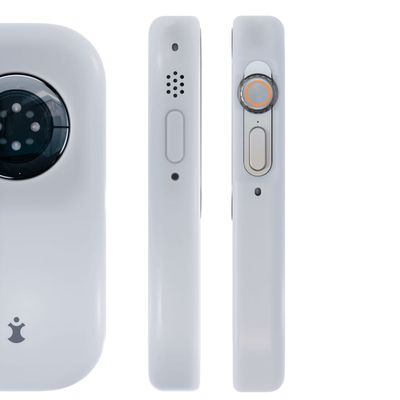Korean Carriers Reportedly Negotiating with Apple for 800/1800 MHz LTE Service on Next iPhone
Apple's next-generation iPhone is of course expected to support LTE connectivity in at least some markets, but given differences in LTE frequency bands around the world it is interesting to note that The Korea Times reports (via The Next Web) on comments from sources at current iPhone partners SK Telecom and KT claiming that they are currently in negotiations with Apple over LTE service for the forthcoming device.
"KT is in negotiation with Apple to persuade the latter to support KT’s 1.8-gigahertz frequency in Korea for the upcoming iPhone," said one senior KT executive, asking not to be identified. KT spokeswoman Kim Yoon-jeong declined to confirm.
The company, which joined the race for LTE-enabled smartphones later rivals SK and LG, is trying to persuade Apple to have its new iPhone support LTE connectivity, according to KT officials.
SK Telecom is also pushing for the same. Officials from the nation's biggest mobile carrier are currently in Apple headquarters in California to persuade Apple to support SK's LTE frequency for its local customers.
It is unclear, however, exactly what SK Telecom and KT are attempting to achieve in their efforts to "persuade" Apple to support their LTE frequencies on the next-generation iPhone, given that the hardware capabilities of the device have long been finalized. If the hardware does support the Korean carriers' frequencies and the negotiations are simply over contractual terms, it would suggest that there could be significant expansion of international LTE compatibility for the iPhone compared to the third-generation iPad.

The third-generation iPad supports LTE only over the 700 MHz and 2100 MHz frequency bands, with only a handful of carriers including AT&T and Verizon in the United States and Bell, Rogers, and Telus in Canada being supported for the device. With SK Telecom using the 800 MHz band as its primary LTE spectrum and 1800 MHz as a secondary band, and KT operating solely on 1800 MHz, the next-generation iPhone hardware would need to have new LTE frequency support for service on those carriers to even be possible. Notably, the 800 MHz and 1800 MHz bands are also the spectrum being used for LTE in Europe, Australia, and other markets, and thus hardware compatibility with those frequencies could significantly expand the number of countries and carriers on which the next iPhone could support LTE connectivity.
Popular Stories
Apple will adopt the same rear chassis manufacturing process for the iPhone SE 4 that it is using for the upcoming standard iPhone 16, claims a new rumor coming out of China. According to the Weibo-based leaker "Fixed Focus Digital," the backplate manufacturing process for the iPhone SE 4 is "exactly the same" as the standard model in Apple's upcoming iPhone 16 lineup, which is expected to...
Apple typically releases its new iPhone series around mid-September, which means we are about two months out from the launch of the iPhone 16. Like the iPhone 15 series, this year's lineup is expected to stick with four models – iPhone 16, iPhone 16 Plus, iPhone 16 Pro, and iPhone 16 Pro Max – although there are plenty of design differences and new features to take into account. To bring ...
Israel-based mobile forensics company Cellebrite is unable to unlock iPhones running iOS 17.4 or later, according to leaked documents verified by 404 Media. The documents provide a rare glimpse into the capabilities of the company's mobile forensics tools and highlight the ongoing security improvements in Apple's latest devices. The leaked "Cellebrite iOS Support Matrix" obtained by 404 Media...
If you have an old Apple Watch and you're not sure what to do with it, a new product called TinyPod might be the answer. Priced at $79, the TinyPod is a silicone case with a built-in scroll wheel that houses the Apple Watch chassis. When an Apple Watch is placed inside the TinyPod, the click wheel on the case is able to be used to scroll through the Apple Watch interface. The feature works...
A widespread system failure is currently affecting numerous Windows devices globally, causing critical boot failures across various industries, including banks, rail networks, airlines, retailers, broadcasters, healthcare, and many more sectors. The issue, manifesting as a Blue Screen of Death (BSOD), is preventing computers from starting up properly and forcing them into continuous recovery...
Apple is seemingly planning a rework of the Apple Watch lineup for 2024, according to a range of reports from over the past year. Here's everything we know so far. Apple is expected to continue to offer three different Apple Watch models in five casing sizes, but the various display sizes will allegedly grow by up to 12% and the casings will get taller. Based on all of the latest rumors,...





















